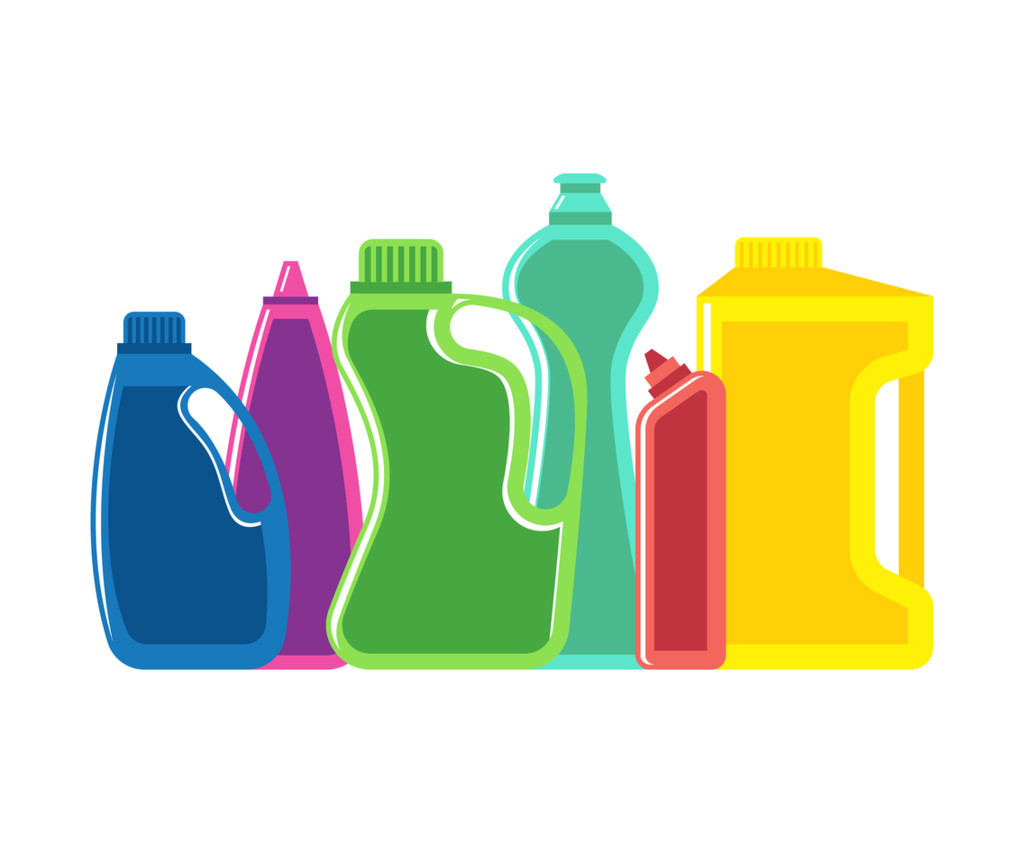
Everyday Household Items that cause Pollution
by Yash Saboo February 19 2018, 3:00 pm Estimated Reading Time: 2 mins, 25 secsEngineering changes to car exhausts have dramatically reduced the amount of pollution produced per mile, meaning that (a) there is now less to be gained from further changes to cars and (b) the public need more information on how their activities, apart from driving, contribute to current pollution levels.
The study, led by Colorado University, focused on so-called volatile organic compounds (VOCs). These are contained in petroleum-based products such as cleaning fluids and paints, and when they get into the air can form particles that affect health. The scientists say the sources of non-vehicle VOCs have been underestimated.

Source :Free Detergent Vector
This appears a somewhat surprising result because, by weight, we use far more fuel than we do these other chemical products. But Dr. Jessica Gilman says it should not be seen as that remarkable because vehicle fuels are burned (to yield mostly carbon dioxide and water), whereas many of the household products are simply wafted into the air by design.
"Most commonly, they're used as solvents - things like nail polish remover, the hairspray I used this morning; they are used in many cases as cleaning agents like carpet cleaners," the National Oceanic and Atmospheric Administration scientist told reporters.
One of Dr. Gilman's colleagues, Dr. Brian McDonald, did, however, suggest that reduced use would be helpful. "Use as little of the product as you can to get the job done," he said. "In some ways, this is a good news story that, as we control some of the bigger sources in the past, the other sources are emerging in relative importance, such as these consumer products."
Experts say the results of this research are broadly applicable to other industrialized nations, including those in Europe. Anthony Frew, a professor of respiratory medicine at Brighton & Sussex Medical School in the UK, commented: "This research is a useful reminder that discussions of air pollution need to consider all sources of pollutants and that measures targeting cars only address part of the problem.
Jon Bennett from the green group ClientEarth told BBC News: “We very much welcome the reduction in emissions. "But the concentrations of NO₂ (nitrogen dioxide) in towns and cities are at illegal and harmful levels. So, government policy needs to focus on bringing these down with clean air zones, diesel-scrappage and other initiatives.”
The news is contained in the annual national emissions data from the Department for Environment, Food and Rural Affairs (Defra). (PDF). This records a decades-long general trend downwards in all pollutants in the UK – except for ammonia.
The government has registered significant progress, though, in reductions of another gas, SO₂. The report says SO₂ emissions decreased by 29% from 2015 to 2016, dropping to a new low. This is mainly thanks to the steady closure of coal-fired power stations. NOx emissions from the energy industries also fell by 45% between 2012 and 2016. That was the greatest change for any emissions source group.




-173X130.jpg)
-173X130.jpg)
-173X130.jpg)
-173X130.jpg)
-173X130.jpg)
_(1)-173X130.jpg)

-173X130.jpg)